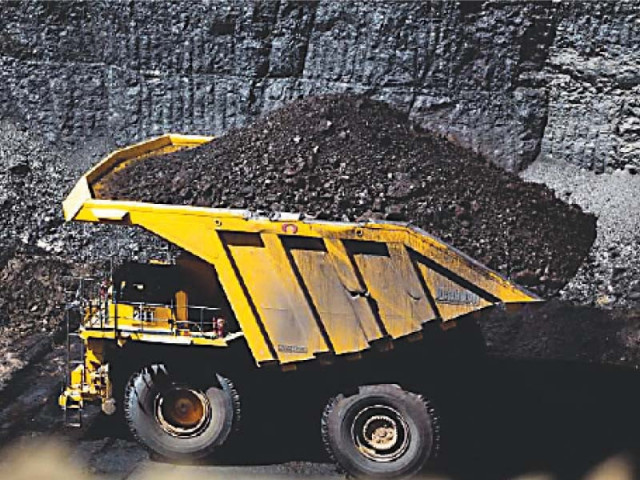Thar coal poisoning water: report
ELAW report reveals all samples collected are unfit for human consumption

The Thar Coal project’s toxic effects on the drinking water in Thari communities have been confirmed by a new report authored by Dr Mark Chernaik of the Environmental Law Alliance Worldwide (ELAW).
The report reveals that coal power operations are harming the drinking water and the integrity of subsoil and water aquifers in Block II of the Thar coal area, posing a severe threat to public health and the environment.
All of the drinking water samples collected are unfit for human consumption due to elevated levels of toxic metals such as selenium, arsenic, mercury, chromium, and lead. The testing was conducted on nine water samples in and near Thar Coal Block II on June 28, 2022. The tests confirm that all the samples exceed the permissible limits for chloride, TDS, mercury, and lead. Eight of the nine locations also show excess fluoride, and arsenic was found to be in excess of permissible limits at four out of six locations tested.
The report notes that excessive levels of selenium, arsenic, mercury, chromium, and lead are of recent origin and associated with coal activities in the Thar coalfields. Lead levels were found to be more than seven times higher than WHO standards and also in excess of Sindh standards; Mercury levels were found to be 19 to 95 times higher than WHO and Sindh standards; Selenium levels were found to be 6-20 times higher than WHO standards and Sindh standards; Arsenic levels were found to be two times higher than WHO standards.
Lead, mercury, selenium, and arsenic are toxic heavy metals that can have significant adverse effects on human health and the environment when present at high levels. Long-term exposure to these metals can cause various health problems, including developmental delays, cognitive impairment, behavioural disorders, kidney damage, respiratory problems, neurological damage, reproductive failure, and deformities in wildlife and cattle.
The mining activities have disrupted the ecological balance of the region, resulting in severe consequences for the environment and the people living in the surrounding areas. To address the issue, the government and private sector have installed RO plants to purify the contaminated water. However, the effectiveness of these plants is questionable, as some of them are not even functional, leaving the local people with no choice but to use contaminated water for their daily needs.
Speaking to The Express Tribune, Leela Ram, a resident from the Gorano area of Thar, said that, “Toxic elements are not only found limited to Thar Coal blocks but also extending to nearby areas, posing a severe threat to the environment and public health. The high levels of selenium in Thar area, due to coal extraction, have contaminated the underground water, which has been the primary source of drinking water for generations of people and their livestock. The situation has become so alarming that the local residents are concerned about the harmful effects on the ecosystem and their well-being.”
The report raises questions about the Sindh Environmental Protection Agency (SEPA)’s willingness and capacity to monitor the Thar coal activities adequately and casts doubt on the adequacy of the approved Environmental Impact Assessment (EIA) for Thar coal mining and power plants.
“It is essential to recognise the gravity of the situation and take immediate measures to mitigate the damage caused by mining activities, said Ram, who has filed a constitutional petition in the Sindh High Court against the environmental issue.
The government and private sector must work together to ensure the functioning of the RO plants and develop sustainable solutions to protect the environment and public health. Long-term strategies must be put in place to address the issue of toxic elements and prevent further harm to the ecosystem and the people dependent on it.
The Thar coal project has promised a bright future for the country’s energy needs, but it is now evident that the project is also causing significant damage to the health of the people and the environment. The government must take responsibility for mitigating the harmful effects of the project and prioritise the well-being of its citizens and the environment.
It is crucial to conduct comprehensive and independent studies to assess the impact of mining activities on the environment and public health regularly. The findings of such studies must be made public and acted upon immediately. The government should also ensure that the affected communities are adequately compensated for the harm caused and provide them with alternative sources of clean water and livelihood.
The Thar Coal Project’s toxic effects on drinking water and the environment must not be ignored, and urgent action is needed to address the issue. The government, private sector, and civil society must work together to ensure sustainable development that prioritises public health and environmental protection.
Published in The Express Tribune, April 14th, 2023.
Like Business on Facebook, follow @TribuneBiz on Twitter to stay informed and join in the conversation.



















COMMENTS
Comments are moderated and generally will be posted if they are on-topic and not abusive.
For more information, please see our Comments FAQ